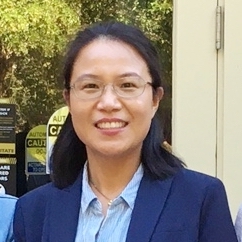I received my Ph.D. degree in physics from Wake Forest University in December 2021. Under the supervision of Prof. Natalie Holzwarth, my Ph.D. thesis focused on using DFT modeling tools to understand the fundamental and technological properties of electrolyte materials for all-solid-state batteries. Currently, I am continuing my interest in computational research for battery materials.
In my leisure time, I enjoy reading books, watching movies, and going for hikes.
